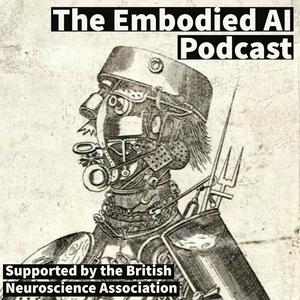Alex is a professor and the director of the Institution for Language, Cognition and Computation at Edinburgh. She is interested in discourse coherence, gestures, complex games and interactive task learning. After we find out about Alex's background and geek out over Ludwig Wittgenstein, she tells us about Dynamic Semantics and Segmented Discourse Representation Theory (SDRT). SDRT considers discourse as actions that change the state space of the world and requires agents to infer coherence in the discourse. Then, I initiate a discussion between Felix Hill and Alex by asking her about her opinion on compositionality and playing a clip where Felix gives his "spicy take" on theoretical linguistics. Next, we talk about gestures and how they could be analysed using logic or a deep learning classifier. Then, we talk about non-linguistic events and the conceptualization problem. Later, we discuss Alex's work on Settlers of Catan, and how this links to deep reinforcement learning, Monte Carlo tree search, and neurosymbolic AI. Next, we briefly bring up game theory and then talk about interactive task learning, which is about agents learning and adapting in unknown domains. Finally, there are some career questions on whether to do a PhD and what makes a good supervisee & supervisor.
Timestamps:
(00:00) - Intro
(02:00) - Alex's background & Wittgenstein geekiness
(05:15) - Discourse Coherence & Semantic Discourse Representation Theory (SDRT)
(12:56) - Compositionality, Responding to Felix Hill's "spicy take"
(23:50) - Analysing gestures with logic and deep learning
(38:54) - Pointing and evolution
(42:28) - Non-linguistics events in Settlers of Catan, conceptualization problem
(54:15) - 3D simulations and supermarket stocktaking
(59:19) - Settlers of Catan, Monte Carlo tree search, neurosymbolic AI
(01:11:08) - Persuasion & Game Theory
(01:17:23) - Interactive Task Learning, symbol grounding, unknown domain
(01:25:28) - Career advice
Alex Webpage (All articles are open access)
My Twitter
Talks and Papers
Talk on Discourse Coherence and Segmented Discourse Representation Theory
A Formal Semantic Analysis of Gesture paper with Matthew Stone paper
A formal semantics for situated conversation paper with Julie Hunter & Nicholas Asher paper
Game strategies for The Settlers of Catan paper with Markus Guhe paper
Evaluating Persuasion Strategies and Deep Reinforcement Learning methods for Negotiation Dialogue agents paper with Simon Keizer , Markus Guhe, & Oliver Lemon paper
Learning Language Games through Interaction paper with Sida Wang, Percy Liang, Christopher Manning paper
Interactive Task Learning Paper with Mattias Appelgren paper
Follow the podcast
For new episode releases, follow me on Twitter.
I welcome your comments, questions, and suggestions. Feel free to email me at
[email protected]
If you are interest
